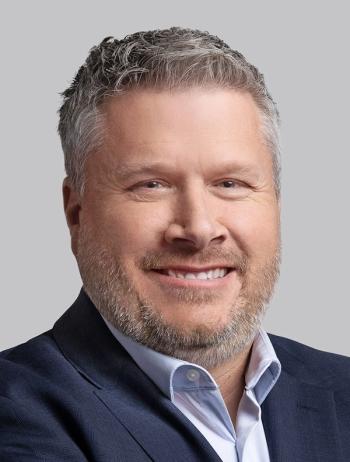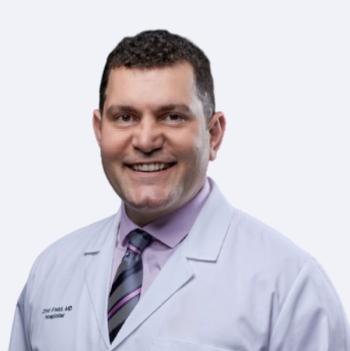
Why gun violence is a public health problem
ACP’s president, Jack Ende, outlines the organization’s stance not against guns, but rather firearm violence
The recent shooting deaths of 17 students and adults at a Florida high school has sparked a new round of debate over ways to curb gun violence. Following the shootings, five physician organizations issued a joint statement calling gun violence “a public health epidemic that is growing in frequency and lethality and…is taking a toll on our patients.” The statement urges lawmakers to treat gun violence as “a pervasive threat to public health” and to take evidence-based measures to prevent future suffering due to guns.
To learn more about the movement to treat gun violence as a public health issue, and how individual physicians can address the problem, Medical Economics spoke with Jack Ende, MD, MACP, president of the American College of Physicians (ACP), one of the signatories to the joint statement.
In your view, would approaching gun violence and gun control as public health issues actually help to reduce gun violence?
Jack Ende: While we don’t have all the data yet, there are data that suggest that when physicians bring this up in their practice, when they screen for both patients at risk for gun violence-either harming others or themselves-that they can make a difference. And certainly it just makes sense for doctors to take a public stance on this, but also to build this into their day-to-day practice.
One can really draw the analogy between gun violence and other public health issues, public health issues that at first glance were never considered within the purview of physicians, like wearing seatbelts. And now we’re very much involved in [the campaign of] don’t text while you drive.
Tobacco use is another public health issue. Physicians including this in their general history and physical and providing counseling have been shown to make a real difference. I think it has to be a multi-pronged effort on gun violence, but the medical profession really does have a very important role to play. Not exclusively, of course. We need policymakers at the state and national level, but physicians also have a real role to play here.
Why do you think Congress and state legislatures have been slow to treat gun violence as a public health issue?
Ende: I think the whole issue unfortunately reflects how we make policy at the national level, oftentimes influenced by specific interest groups rather than national welfare. I’m not a politician, but in certain districts, in certain states, the gun lobby has undue influence over the legislative process.
The College is not opposed to owning guns. Our policy really is focused on firearm violence. There is within the Second Amendment still so much that can be done to limit the amount of guns, particularly these guns that are more suitable for war than for recreation.
Does the ACP have an official position regarding the use of guns, or guns in the home?
Ende: Absolutely. It’s a very important issue for the College. We’ve taken a stance on this going back several years. In 2015 we issued a paper that was jointly written with other physician groups like the American Academy of Pediatrics and American College of Surgeons, and even the American Bar Association signed on to that paper. It’s one of the few times when doctors and lawyers have joined forces to put together real policy.
There’s a link (bit.ly/ACP-pledge) and the pledge says, “When risk factors for harm to my patients or others are present, I will ask my patients about firearm ownership and safety.” And hundreds of doctors have signed onto that. It’s encouraging physicians to include questions about firearms in their routine history and physical. For new patients it’s a very simple question, ‘Do you have firearms?” If they answer “yes,” there are some follow-up questions.
But also for patients at risk. Those with substance abuse, those with alcohol problems, certain mental illnesses-not all-certain patients who are depressed or at suicide risk, we really need to ask questions about guns.
Houses that have children should be included as well. And if they do have guns, the follow-up questions would be [if] the gun is safely stored and locked and the ammunition is kept separate from the guns. We think the data will show that does make a difference.
TRENDING ONLINE:
In the 1990s Congress put limits on the CDC’s ability to research gun violence. Have the ACP and other medical organizations lobbied to get that lifted?
Ende: Absolutely. We need more research on this, but there are limits to the kinds of research that’s being done by the CDC and other public health institutions and that really is one of the problems. So that is a point that’s clearly made in all our position statements, that we need more data. We need governmental agencies to do the research on this.
It’s like any other public health problem. Ebola, for example. You really need to get in, do the research, find out what the risk factors are, and find out what the pathophysiology is. That is the way to go about addressing issues of public health.
What sense do you get from ACP members as to the importance of reducing gun violence?
Ende: When we came out with our 2015 joint position paper, there was a bit of pushback because so many of our members own and enjoy having guns as part of their hobbies. But as members looked into this further, they came to realize we were not speaking out against guns, but rather firearm violence. And it’s very difficult to find a doctor that would be opposed to that position.
And College members, like I believe the public in general, have reached a point where there’s just greater concern about firearm violence. Not necessarily owning guns, but firearm violence. And in whose hands should those guns be? People with substance abuse, alcohol, serious depression-they should not be allowed to have guns.
One of the points the College makes is that these mass shootings, as horrific as they are, are really just a part of the problem. There are 33,000 deaths per year and twice that number of injuries.
Do you think gun violence is a public health issue? What role, if any, do you think physicians have in reducing gun violence? Tell us at [email protected].
Newsletter
Stay informed and empowered with Medical Economics enewsletter, delivering expert insights, financial strategies, practice management tips and technology trends — tailored for today’s physicians.






